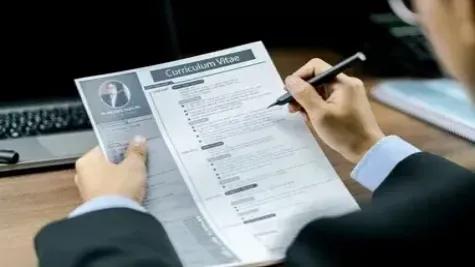In today's competitive job market, your CV is more crucial than ever before as it is the difference between successfully progressing in the application process and being rejected.
Furthermore, with over 90% of large companies adopting Applicant Tracking Systems (ATS), more and more people are having their applications rejected before a member of the recruitment team reads it, as the ATS software system is programmed to filter out specific components of a resume to streamline the recruitment process.
This blog entry will highlight the key components that should be excluded from your CV in order to bypass the ATS rejection software and grasp the attention of prospective employers.

1) Non-Standard Font Types and Titles
When reviewing multiple CVs, organisations will form initial opinions on who to accept and reject initially by the layout of every submitted resume. Make sure to use standard CV titles and professional font types such as Arial or Calibri in order to keep your resume professional and avoid rejection before your application is even read.
2) Profile Pictures
It’s not a standard practice in the UK and isn’t necessary. Using a photo takes up too much space within your CV which could be better used to highlight relevant experiences or write a personal statement that is tailored to the job you are applying for.
Furthermore, most employers prefer their applicants to refrain from including photos within their applications, allowing the organisation to hire on the basis of equal opportunity.

3) Career Goals
These are unnecessary. Employers know your immediate goal is to achieve employment, hence your application. This will take up valuable space within your CV and could even act as a hindrance to your progress. If your career goals differ from those of the organisation you applied to, recruiters may decide to hire someone else as they seem to be a better fit. So, it is safer to leave these out.
4) Unrelated Content
Especially within graduate CVs it is common for applicants to fill their CV with information on unrelated awards, hobbies, and work experience. However as established, being concise is key. Writing unrelated content wastes both you and the interviewer’s time, which could result in rejection.
Only fill your CV with relevant work experience that will enhance your application, and for those graduates who do not have a lot of experience at such an early stage, do not panic. Employers understand you do not have much experience to talk about, so utilise this space in your CV to write a more detailed personal statement or highlight your skillset relevant to the sector you wish to work in.
5) References
Listing references and their personal details is unnecessary and once again takes up precious word count. Generally, employers will assume that you have references when you apply for the position, and they will ask for them if and when appropriate. Including them within your CV will just waste space that could be used to differentiate yourself with relevant information.

Overall, when it comes to CV writing being concise is key. With recruiters only spending 7-8 seconds on average looking at your resume, it is evident that your CV needs to stand out in order for you to stand out in a highly competitive job market.
Following the steps in this blog is one step to differentiating yourself from your competition and achieving careers success. However, there are many more hints and tips available that will further prepare you for the job market here.
Once you harness this information you will be ready to begin applying for your next job role! To find that next role click here: Job Openings
For further and more tailored carer advice speak to one of our expert consultants by calling 028 9033 0250 or email hello@vanrath.com
